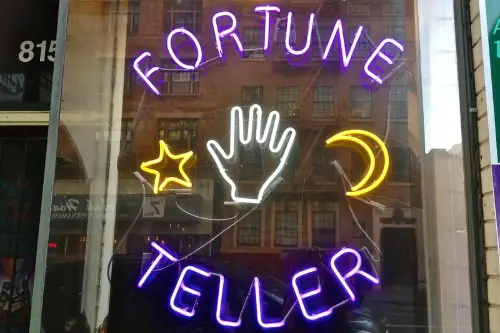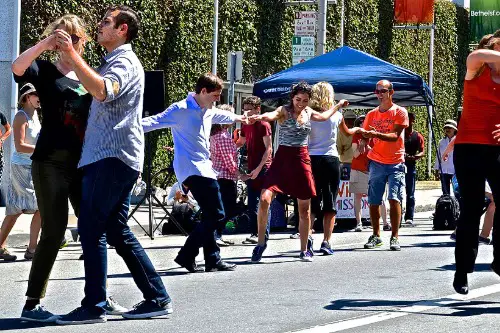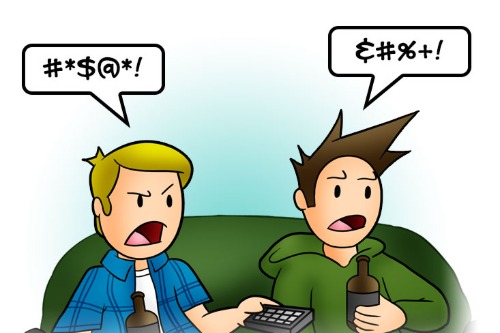1. Fortune Telling

Fortune telling has been criminalized in various U.S. cities for over a century. Laws often targeted “fraudulent” spiritual practices, especially when money changed hands. While enforcement was inconsistent, many cities kept these laws on the books well into the 2000s. Today, fortune telling is mostly legal, especially when framed as entertainment.
Still, some municipalities are revisiting these laws under the guise of consumer protection. There’s growing concern about scams involving psychic readings, especially online. If regulation tightens, we could see a return to bans or heavy licensing requirements. So your neighborhood tarot reader might want to keep an eye on city council meetings.
2. Home Brewing Beer

From Prohibition until 1978, brewing beer at home was a federal crime. President Jimmy Carter signed a bill that year legalizing home brewing for personal use, which helped spark the modern craft beer movement. Before that, even a small batch of IPA in your garage could land you in legal trouble. Today, home brewing is a beloved hobby with clubs, competitions, and entire stores dedicated to it.
However, the rise of state-level alcohol restrictions and tax debates could put home brewers back in the crosshairs. Some states have already proposed tighter regulations on alcohol production and distribution. If federal or state governments decide to revisit alcohol laws for public health or tax reasons, home brewing could be an easy target. It’s not likely—but it’s not impossible either.
3. Drag Performances

Drag shows have long been a form of artistic expression, but they weren’t always welcome under the law. In the mid-20th century, many cities had laws against cross-dressing, which were often used to target drag performers. These laws were gradually repealed or struck down, and drag became a celebrated part of LGBTQ+ culture. Shows like “RuPaul’s Drag Race” helped bring it into the mainstream.
Recently, though, several states have introduced or passed laws restricting drag performances in public or near children. These laws are often framed as protecting minors, but critics argue they’re thinly veiled attempts to suppress queer culture. Legal challenges are ongoing, but the fact that drag is back in the legal spotlight is a worrying echo of the past. What was once illegal could be again, depending on how courts rule.
4. Dancing in Public

Yes, “Footloose” was based on a real thing—some towns actually banned public dancing. In places like Elmore City, Oklahoma, dancing was seen as morally corrupting and was outlawed until the 1980s. These laws were often rooted in religious beliefs and fears about youth culture. Over time, most of these bans were repealed or simply ignored.
But in recent years, some cities have flirted with bringing back restrictions on dancing, especially in nightlife districts. Concerns about noise, alcohol, and public safety have led to proposals for stricter licensing for dance venues. While not outright bans, these regulations could make spontaneous or unlicensed dancing technically illegal again. It’s a reminder that even joy can be legislated.
5. Pinball Machines

It’s hard to believe, but pinball was banned in cities like New York and Los Angeles from the 1940s to the 1970s. Authorities believed it was a game of chance, not skill, and associated it with organized crime. The ban was lifted in NYC in 1976 after a dramatic demonstration proved it was a game of skill. Since then, pinball has become a nostalgic staple of arcades and bars.
However, with the rise of gambling laws targeting “skill-based” machines, pinball could get caught in the crossfire. Some states are cracking down on arcade-style games that offer prizes or cash equivalents. If pinball machines start offering rewards, they could be reclassified under gambling laws. It’s a long shot, but not out of the realm of possibility.
6. Birth Control

Believe it or not, birth control was once banned in many parts of the U.S., even for married couples. It wasn’t until 1965 that the Supreme Court ruled in Griswold v. Connecticut that married couples had a constitutional right to use contraception. Access expanded further in 1972 with Eisenstadt v. Baird, which extended that right to unmarried individuals. These rulings helped usher in a new era of reproductive freedom.
But today, that freedom is facing renewed scrutiny. With the overturning of Roe v. Wade in 2022, some lawmakers have floated the idea of restricting access to certain forms of contraception. Legal scholars and activists worry that the same logic used to overturn Roe could be applied to Griswold. So while birth control is legal now, its future isn’t as secure as it once seemed.
7. Public Swearing

Cursing in public was once a jailable offense in many parts of the U.S. These laws were often tied to broader “public decency” statutes and were used to police behavior in parks, streets, and even online. While most of these laws have been struck down or ignored, a few still linger in obscure municipal codes. Occasionally, someone still gets cited for “disorderly conduct” just for dropping an F-bomb.
Now, with rising concerns about civility and online harassment, some lawmakers are revisiting the idea of regulating speech in public spaces. While a full return to anti-swearing laws is unlikely, new ordinances could target “offensive language” more broadly. That could open the door to renewed restrictions on how we express ourselves in public. So watch your mouth—just in case.
8. Same-Sex Marriage

Same-sex marriage was illegal in most of the U.S. until the Supreme Court’s 2015 decision in Obergefell v. Hodges. That ruling guaranteed marriage equality nationwide, marking a huge victory for LGBTQ+ rights. But the legal foundation for that decision—like Roe—rests on the right to privacy and equal protection. And that foundation is now under scrutiny.
In 2022, Justice Clarence Thomas suggested revisiting Obergefell in a concurring opinion related to the Dobbs decision. That sparked fears that marriage equality could be rolled back if the Court’s composition shifts further. While Congress passed the Respect for Marriage Act to offer some protections, it doesn’t guarantee full federal recognition. So yes, something once illegal—and now deeply personal for millions—could be back on the chopping block.
This post 8 Things That Used to Be Illegal in the U.S.—And Might Be Again Soon was first published on American Charm.


